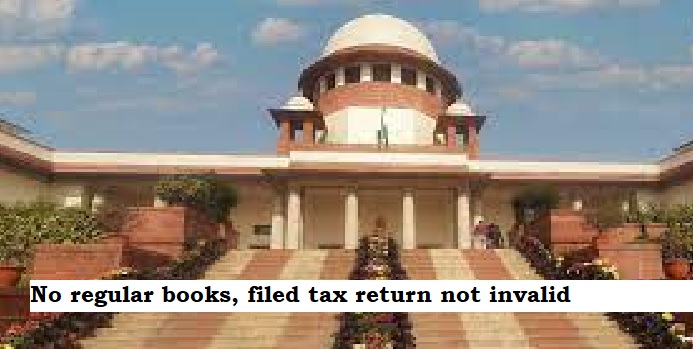


In a recent decision, the Supreme Court addressed the issue of reopening a concluded assessment under Section 147 of the Income Tax Act and emphasized the limited obligation of the assessee in making a "full and true" disclosure of "material" facts. The court highlighted that once the assessee fulfills this obligation, the burden shifts to the assessing officer, and if a return is deemed defective, it is the officer's responsibility to inform the assessee for rectification.
The case involved the assessment of a partnership firm for the years 1990-91, 1991-92, and 1992-93. During the filing of the returns for these years, the appellant did not submit balance sheets or regular books of account due to a search and seizure operation by the Revenue. However, assessment orders under Section 143(3) of the Act were still passed. In subsequent years, the appellant submitted profit and loss accounts and balance sheets, leading to the assessing officer discovering a discrepancy. As a result, the assessment for the appellant and its partners for the years 1988-89 to 1993-94 was sought to be reopened.
The assessing officer considered the profit and loss account and balance sheet filed by the appellant before a bank and initiated reassessment proceedings based on the alleged escaped income. The appellant contested this, arguing that the reassessment was barred by limitation, as more than four years had passed from the end of the relevant assessment years. Additionally, the appellant contended that income escaping assessment should not be computed on an estimated basis.
The Commissioner of Income Tax (Appeals) rejected the appellant's arguments but acknowledged that the balance sheet submitted to the bank was unreliable. The Income Tax Appellate Tribunal later held that the reassessments were not justified as they lacked fresh material or evidence. The Tribunal ruled that the case fell under the proviso to Section 147, rendering the reassessment barred by limitation.
However, the High Court overturned the Tribunal's decision, prompting the appellant and its partners to appeal to the Supreme Court. The court first examined Section 147, which permits reassessment if the assessing officer has a "reason to believe" that income has escaped assessment. The court noted a proviso stating that reassessment cannot occur after four years from the end of the relevant assessment year, unless there is a failure on the part of the assessee to respond to a notice under Section 148 or to disclose fully and truly all material facts necessary for assessment.
Analyzing the facts, the Supreme Court found that although the appellant could not submit regular books of account, it had provided tentative profit and loss accounts and details of incomings and outgoings for the relevant years. These were duly verified and considered by the assessing officer when passing assessment orders under Section 143(3). The court criticized the assessing officer for relying on a discarded balance sheet submitted to the bank, erroneously concluding that there was an escapement of income and initiating reassessment proceedings.
In essence, the court underscored the assessing officer's duty to exercise discretion, ascertain defects, and intimate the assessee for rectification. Failure to do so renders the return not defective. The court also emphasized that the initiation of reassessment proceedings must be based on valid reasons and fresh material. The appellant's contention regarding the limitation period for reassessment was upheld, highlighting the importance of adherence to statutory timelines in such cases.
This decision serves as a reminder of the principles governing reassessment under the Income Tax Act, emphasizing the need for a valid reason to believe income has escaped assessment and the importance of timely and accurate disclosure by the assessee.
TAGS: Supreme Court Section 147 Income Tax Act Reopening of Assessment Assessee's Obligation Full and True Disclosure